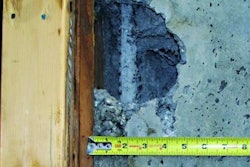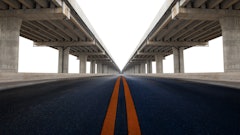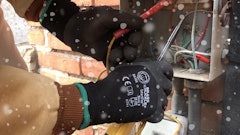With money in the Highway Trust Fund dwindling as tax receipts fall, Congress faces a dilemma it has so far been unable to solve: how to come up with more highway and transit money without raising taxes.
For the past several years, the answer has been to shore up the fund with infusions of cash from the general Treasury. But in a Congress filled with newly elected fiscal hawks, deficit spending to bolster the highway fund is likely to be as unwelcome as tax increases.
This will make drafting a new surface transportation bill -- never easy even when coffers are flush with money -- particularly difficult, especially as election-year politics come into play in the second half of 2011.
The first inkling that all would not be business as usual in the 112th Congress came when the GOP-controlled House approved a rules package last week that removes a firewall protecting multi-year transportation spending from meddling by appropriators.
The new rules abolish a point of order that had barred the House from considering any appropriations bill that shortchanges authorized highway and transit spending levels. The effect was to ensure that money set aside in the trust fund for transportation wasn't tapped for other purposes.
Supporters of the rule change say the purpose is not to raid the Highway Trust Fund, but to ensure that lawmakers are not forced to spend more on transportation projects than the fund collects. That's exactly what has happened in recent years, as the trust fund -- bankrolled in large part by motor fuel taxes, which have fallen during the recession -- has needed billions of dollars from the general fund to meet its obligations.
Between the rule change and opposition to raising fuel taxes, authorizers are unlikely to have the resources for a highway bill as ambitious as the six-year, $500 billion plan that was proposed in the 111th Congress by Transportation and Infrastructure Chairman James L. Oberstar, a Minnesota Democrat.
The current anti-earmark fervor -- especially in the House -- may also complicate efforts to write a new highway bill. Typically, earmarks have been used as a tool for winning the broad bipartisan support needed to enact a highway bill. Even some earmark critics have suggested that there may be some wiggle room for member-directed spending on transportation projects.
The administration was largely silent on the issue during the 111th Congress, beyond stating that it would not support a motor fuels tax hike or a user fee based on the number of miles a vehicle is driven.
Late last year, the White House released a set of principles intended to inform the next surface transportation bill and also called for an immediate $50 billion "down payment" on the first year of a multi-year surface transportation bill. But Republicans dismissed the $50 billion plan as another expensive stimulus, and the administration sidestepped the toughest question by failing to offer ideas for funding a new highway bill.
The administration's delay in wading into the debate seemed to paralyze Democrats in the last Congress. House Republicans aren't likely to be as demure in the 112th Congress.
Florida Republican John L. Mica, the new House Transportation and Infrastructure Committee chairman, has said he wants to report a bill -- expected to look significantly different than the measure his predecessor drafted -- out of committee by spring.
Mica says he wants to stretch money currently available for transportation, through such initiatives as public-private partnerships. He also wants to re-evaluate money that may be "sitting idle" in some funds.
Source:


















